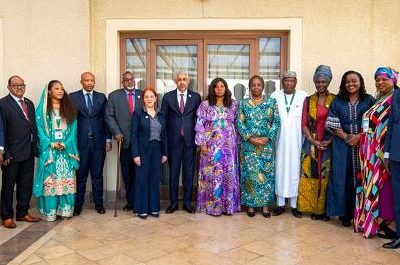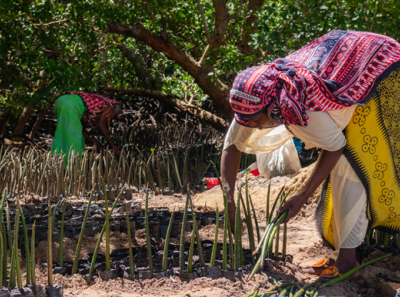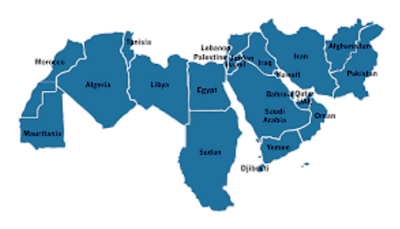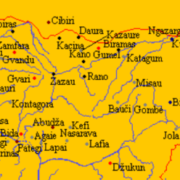Over the past year, Nigeria’s homegrown terror group Boko Haram
has escalated its deadly attacks against Christian and government
targets, with the aim of establishing a Sharia state in the
country’s north.
Nearly 30 years ago, in the largely Christian heartland of a
multireligious Nigerian nation, and at that nation’s pioneer
institution—the University of Ibadan—a minister of education
summoned the vice chancellor and ordered him to remove a cross
from a site dedicated to religious worship. Some Muslims had
complained, he claimed, that the cross offended their sight when
they turned east to pray.
The don’s response was: “Mr. Minister, it would be much easier to
remove me as vice chancellor than to have me remove that cross.”
Christians mobilized. A religious war was barely averted on
campus. Today the Christian cross occupies that same spot, with
the Islamic star and crescent raised only a few meters away. As I
observed at a lecture several years later, there has been no
earthquake beneath, no convulsions of the firmament above that
space, no blight traceable to the cohabitation of that spot by
Christian and Muslim symbols.
I evoked that occurrence when the latest torch bearers of
fanaticism—a group called Boko Haram—emerged. I did so to draw
attention to the fact that religious zealotry is not new in the
nation, nor is it limited to the “unwashed masses” who have been
programmed into killing, at the slightest provocation or none, in
the name of faith. Unfortunately, far too many have succumbed to
the belligerent face of fanaticism, believing that any form of
excess is divinely sanctioned and nationally privileged.
Sectarian killings—numbered in the thousands—preceded Boko Haram,
much organized butch-ery, sometimes announced in advance, always
tacitly endorsed by silence and inaction, escalating in intensity
and impunity. It was consciousness of the geographical expansion
and the increasingly organized nature of the fanatic surge and its
international linkages that compelled me to warn on three public
occasions since 2009 that “the agencies of Boko Haram, its
promulgators both in evangelical and violent forms, are
everywhere. Even here, right here in this throbbing commercial
city of Lagos, there are, in all probability, what are known as
‘sleepers’ waiting for the word to be given. If that word were
given this moment, those sleepers would swarm over the walls of
this college compound and inundate us.”
St. Theresa Catholic Church at Madalla, Suleja after the bomb
attacks on December 25, 2011.
Much play is given, and rightly so, to economic factors—
unemployment, misgovernment, wasted resources, social
marginalization, massive corruption—in the nurturing of the
current season of violent discontent. To limit oneself to these
factors alone is, however, an evasion, no less than intellectual
and moral cowardice, a fear of offending the ruthless caucuses
that have unleashed terror on society, a refusal to stare the
irrational in the face and give it its proper name—and response.
That minister was not one of the “unwashed masses.” He was, quite
simply, the polished face of fanaticism. His prolonged career as
secretary of the Universities Commission and minister of education
inflicted on the nation a number of other policies of educational
separatism that left a huge swath of Nigeria open to fanatic
indoctrination.
Yes, indeed, economic factors have facilitated the mass production
of these foot soldiers, but they have been deliberately bred,
nurtured, sheltered, rendered pliant, obedient to only one line of
command, ready to be unleashed at the rest of society. They were
bred in madrassas and are generally known as the almajiris. From
knives and machetes, bows and poisoned arrows they have graduated
to AK-47s, homemade bombs, and explosive-packed vehicles. Only the
mechanism of inflicting death has changed, nothing else.
This horde has remained available to political opportunists and
criminal leaders desperate to stave off the day of reckoning. Most
are highly placed, highly disgruntled, and thus highly motivated
individuals who, having lost out in the power stakes, resort to
the manipulation of these products of warped fervor. Their aim is
to bring society to its knees, to create a situation of total
anarchy that will either break up the nation or bring back the
military, which ruled Nigeria in a succession of coups between the
mid-1960s and the late ’90s. Again and again they have declared
their blunt manifesto—not merely to Islamize the nation but to
bring it under a specific kind of fundamentalist strain.
Rather than act in defense of Nigeria’s Constitution, past rulers
have cosseted the aggressors for short-term political gains.
However, those who have tweaked the religious chord are
discovering that they have conjured up a Frankenstein. Arrogance
has given way to fear. The former governors of the northern states
of Gombe and Borno wasted no time in issuing full-page
advertorials in the media, apologizing to Boko Haram when the
latter issued threats against them for their alleged role in the
deaths of the group’s members at the hands of security forces in
2009.
First published in January 2012, this article by Nobel Laureate
Wole Soyinka has remained as relevant then as it is today in the
rising cases of violence against churches and mosques.
Much play is given, and rightly so, to economic factors in the
nurturing of the current season of violent discontent. To limit
oneself to these factors alone is, however, no less than
intellectual and moral cowardice, a fear of offending the ruthless
caucuses that have unleashed terror on society
Their aim is to bring society to its knees, to create a situation
of total anarchy that will either break up the nation or bring
back the military.



















